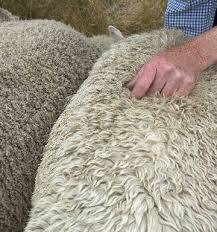A South Island wool broker says the state of the wool market is terrifying with prices the lowest they have ever been.
PGG Wrightson Wool South Island sales manager Dave Burridge said there was reluctance from overseas customers to fully commit to pre-lockdown orders, and Covid-19 had led to less demand.
The prices for full length, good colour, pre-lamb shorn fleece was about $1.90-$2.10 per kilogram, compared to about $3.20/kg a year ago, Burridge said. That’s the clean price, not greasy, he said.
Wool returns for growers were the lowest they had ever been, not including adjustments for inflation, he said.
Some Southland farmers were heartened by carpet company Cavalier Bremworth’s announcement a week ago exiting the synthetic carpet market, but they say more is needed to help the wool industry.
Burridge said the Cavalier announcement would stimulate investment in New Zealand’s rural sector.
Southland farmers are hopeful but say attitudes to synthetic materials and a surplus of wool needs to clear before the market could lift.
Cavalier Bremworth announced on July 23 it will sell down its remaining synthetic fibre stock in a 12-month transition away from the manufacture and supply of synthetic fibre carpets, which it says has a “negative impacts on people’s health and the planet”.
Otapiri Gorge farmer Dan Frew said he knew the potential of wool, but farmers were just not getting the reward.
Frew, brother Brett and father Mervyn farm a combined 1050 hectares in central Southland, with 5800 ewes and 200 hoggets.
Most wool producers were taking a loss on harvesting, Frew said.
It was a “bold and great” move by Cavalier, but it would take a larger shift in perceptions to lift the industry, he said.
“A lot of carpet retailers push synthetics more than we would like,” Frew said.
He wanted the Government to lead and use wool carpeting and insulation in civic and public buildings.
A price rise could be on the horizon, but cost-sustainable harvesting was a long way off, he said.
Frew was also concerned about the environmental affects of fibreglass and other synthetic insulations. “A lot of people don’t know what’s in their houses,” he said.
Ermedale farmer Leon Black said a lot of farmers were doing what they could to get out of wool.
The “throw-away culture” of the past 50 years had been the demise of natural, biodegradable materials, he said.
Black shared concerns with Frew about the long-term implications of synthetic and petro-chemicals.
International markets needed to recognise that synthetics and plastics had negative effects on the environment, Black said.
“Twelve months ago I would have said the wool price couldn’t go any lower. It has,” Black said.
Cavalier’s move was heartening, but he was unsure it would have a significant effect.
Federated Farmers Southland meat and wool chair Dean Rabbidge said Cavalier was a well recognised brand in the sector and the company had made a brave move.
“It’s great to see someone stand up and push the benefits of wool we already knew existed,” Rabbidge said.
A year ago some farmers were breaking even on wool, but were now covering 70-80 per cent of just harvesting, not including freight and other costs, the Eastern Southland farmer said.
The surplus of wool would need to clear before the effects of the Cavalier move were felt in the industry, Rabbidge said.

